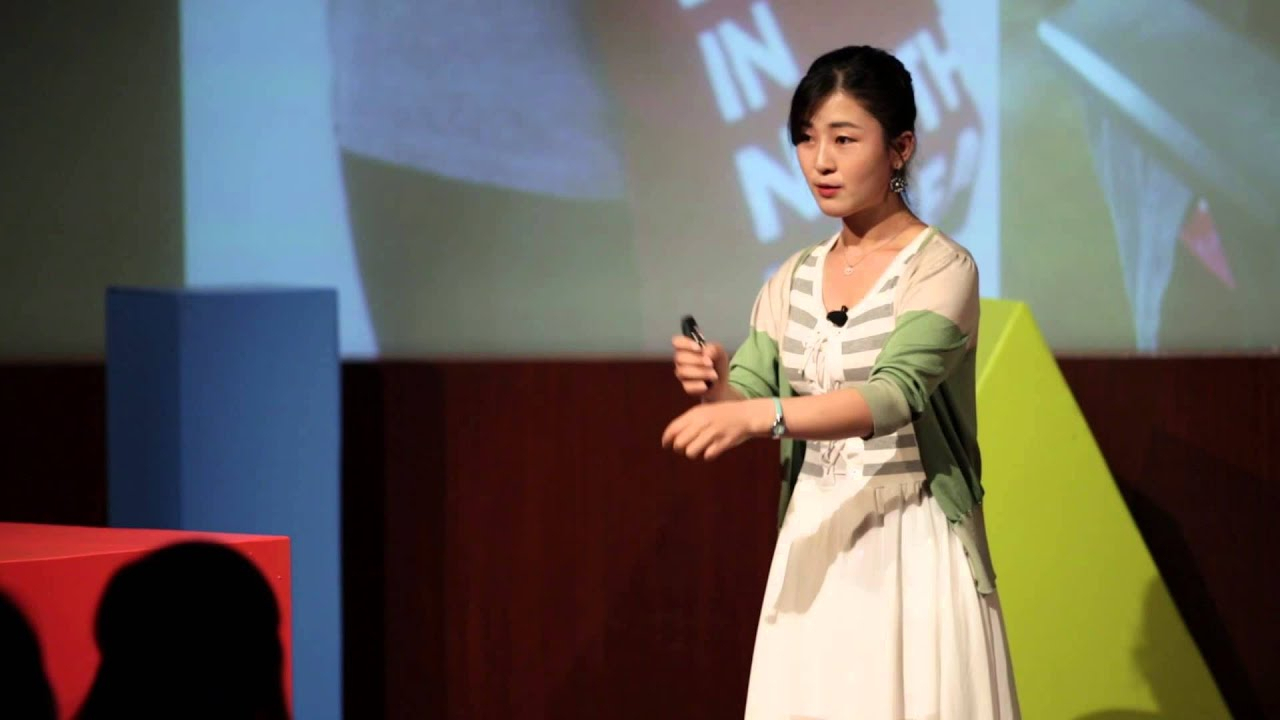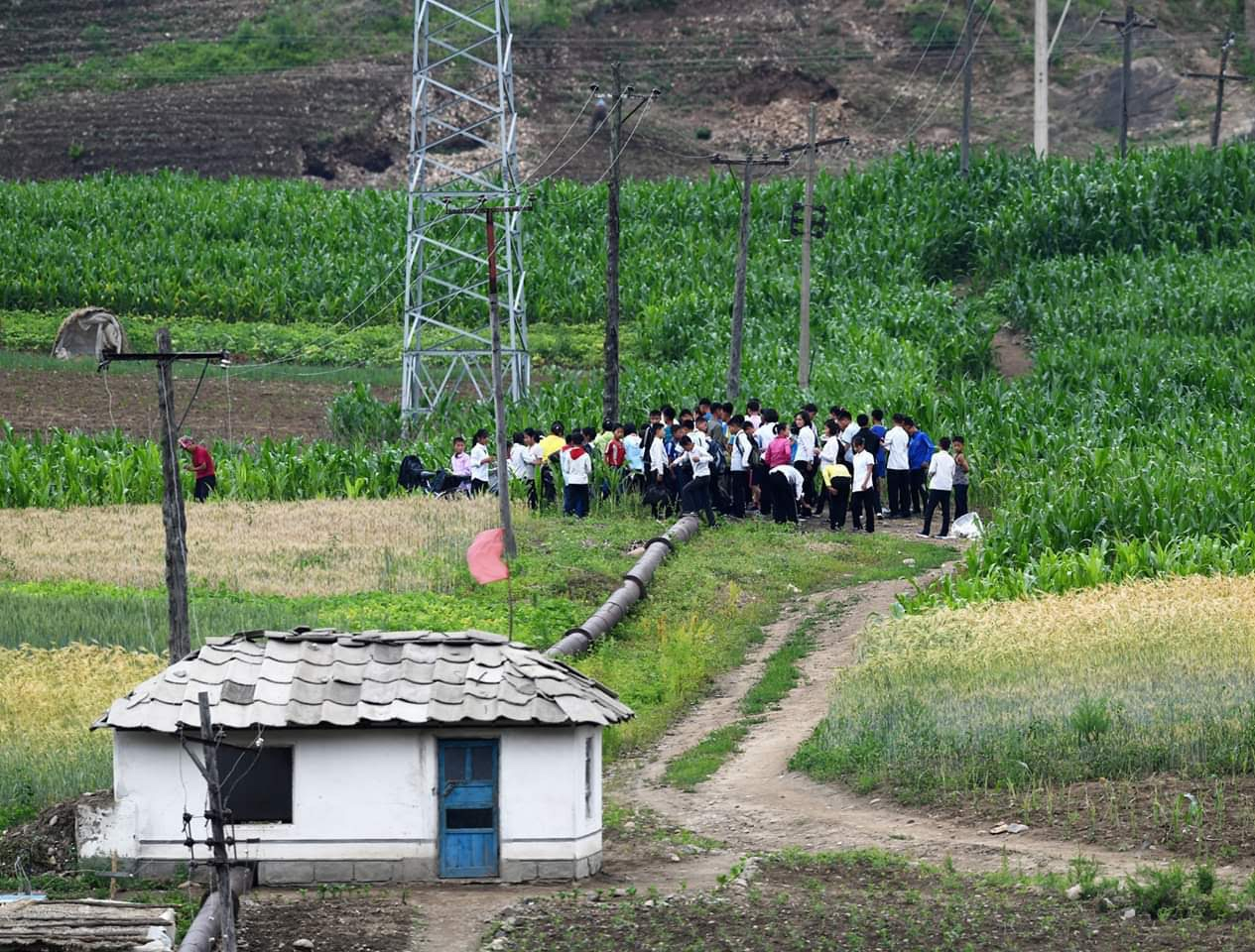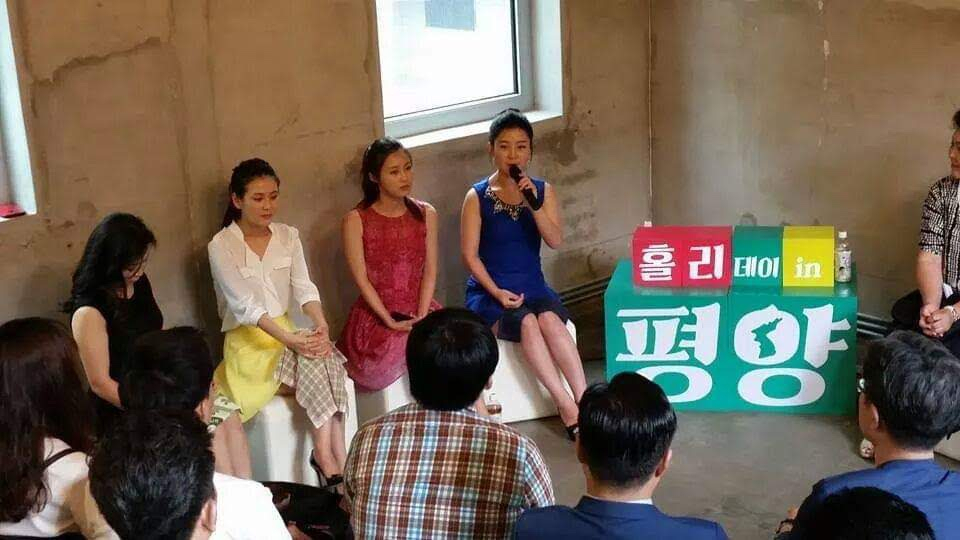 |
Ju Chan-yang gives a talk at an event organized by Liberty in North Korea. (Ju Chan-yang) |
When foreign nationals come to South Korea, they often face the challenge of navigating various cultural differences. For Ju Chan-yang, a Korean from across the border, the disparities she had to grapple with were more intricate and subtle. In light of Human Rights Day, The Korea Herald spoke with Ju, who defected from North Korea in 2010.
Life in North Korea
Life in North Korea for Ju was riddled with hardships from the start. Three years after her birth in 1991, North Korea faced its worst famines from 1994 until 1998, commonly referred to as the “Arduous March.”
Forced to move to the countryside due to the collapse of the public distribution system, Ju recalls a childhood marred by darkness, but also one marked by the beauty of nature.
“I would pick and eat wild greens, and when rice was scarce, I’d satisfy my hunger with vegetables and think to myself, ‘I’m eating like this because I’m poor.’ ... But, after coming to South Korea and never running out of food, I now find myself paying extra to eat organic vegetables for my health and diet,” she said.
“So in hindsight, I realize that my childhood memories weren't all darkness. I also lived a life of wellness -- the kind of lifestyle that is being pursued, not only in South Korea, but globally as well,” she added with a laugh.
Enduring countless hardships, Ju developed resilience and resourcefulness. The instability of the North Korean regime led millennials like Ju to fend for themselves by diving into illegal trading at local bazaars, known as “jangmadang." These markets sold everything from smuggled foreign movies to South Korean clothes and skincare products, exposing younger North Koreans to the outside world.
“In South Korea, we have the Generation MZ, but I’d like to say that, in North Korea, we have the Jangmadang Generation. I also jumped into trading from middle school to earn money.”
 |
A photo taken by Ju Chan-yang's contact in North Korea shows a gathering in a rural village in Hamgyong Province, North Korea. (Ju Chan-yang) |
Escaping North Korea
Ju’s father meticulously planned their family’s escape for a decade.
“Everybody has their own reasons as to why they choose to defect, but for my father, it was for me and my younger siblings’ education,” Ju explained. Tuning in regularly to radio broadcasts that shared information about life beyond the borders played a big part in the escape plan, but Ju says the most significant influence was her own grandfather.
"When I was young, my grandfather told us the world inside North Korea is not everything. I was eager to learn about the outside world, the stories of future technologies, freedom and people from other countries that my grandfather shared with me.”
Ju’s grandfather, a graduate of North Korea’s prestigious Kim Il Sung University, was stripped of his elite status after he was imprisoned in one of North Korea’s most notorious political prison camps, Yodok.
Ju recalls her grandfather frequently showing her his scars while saying that the prison camp he went to was, in fact, comparable to a top university, because, ironically enough, the prison camps were being filled with some of North Korea’s brightest minds.
“My grandfather was a very knowledgeable person but he said he was no match for the other prisoners there. (At the prison camp), my grandfather was able to meet many admirable people and was able to gain a tremendous amount of insights and knowledge. So, although he said his time there was distressing, he also said he was grateful,” Ju noted.
Defecting from North Korea was relatively safe for Ju and her family.
"I was the last in my family to defect. My family members who had already gone to South Korea sent back items and money, which allowed me to prepare. So, I thought my escape would be relatively easy."
However, on the day she crossed the North Korean border and arrived at a Chinese broker's house, she was captured by Chinese authorities and faced being sent back to North Korea. "It felt like the sky was falling down on me. I was engulfed in fear for a week. ... In the Chinese jail, there were defectors who, rather than being repatriated to the North, decided to end their own lives, so we were under constant surveillance."
With the help of her parents’ acquaintances in South Korea, Ju bribed her way to freedom from Chinese prison, and made her way through Vietnam and Laos, and then to Thailand. Although she was taken into custody by Thai authorities, she found herself shedding tears of relief.
"As I was climbing the steps of the Thai police station, I saw a sign in Korean that read, 'Please take off your shoes before entering.' Seeing that sign, I finally felt safe and allowed myself to cry tears of relief."
 |
Ju Chan-yang takes part in a talk show event titled "Holiday in Pyongyang." (Ju Chan-yang) |
A sudden abundance of freedom
Ju felt overwhelmed and disoriented upon arriving in South Korea. The absence of constraints and the sudden abundance of freedom posed challenges for her. Language barriers and issues related to her identity as a Korean compounded these difficulties.
“I could understand some of the language, but I was confused because almost all the words used in South Korea are loanwords. I thought I would be able to communicate easily in South Korea, but when I went to cafes or convenience stores, I couldn't even place a single order,” she said.
Intersectional discrimination as a minority in South Korea was also something Ju had to confront. "(At first) people looked down on me for receiving benefits (from the South Korean government). At that time, I told South Koreans, 'Although I'm receiving help from South Korea's taxes now, soon I'll be a seed that will bear fruit and contribute to this society.'"
Over time, perceptions of North Korean defectors in South Korea changed thanks to more exposure to the stories of North Korean people in Korean media.
However, Ju emphasized the need to recognize individual differences. "I'm a defector from North Korea but I can't represent North Korea as a whole. There are big cultural and language differences within North Korea, and dialects and sceneries vary by region," she stated.
From receiver to giver
A decade since her arrival in the South, Ju has established herself on the outskirts of Seoul, running a cooperative venture that bridges North and South Korean businesses and people.
"I received a lot of help from others in South Korea, which enabled me to resettle. So I want to move from being a receiver to a becoming a giver," she said.
"There are (North Korean) people who come to South Korea with great illusions about the country, only to find themselves unable to endure the hardships of life and resorting to extreme measures. I want to help these people take steps toward settling in, to live a valuable life without giving up. I hope I can help to create more support (for them)."
To learn more about Ju Chan-yang's story, watch her episode of “Life In Korea” on The Korea Herald YouTube channel.







![[Today’s K-pop] Blackpink’s Jennie, Lisa invited to Coachella as solo acts](http://res.heraldm.com/phpwas/restmb_idxmake.php?idx=644&simg=/content/image/2024/11/21/20241121050099_0.jpg)